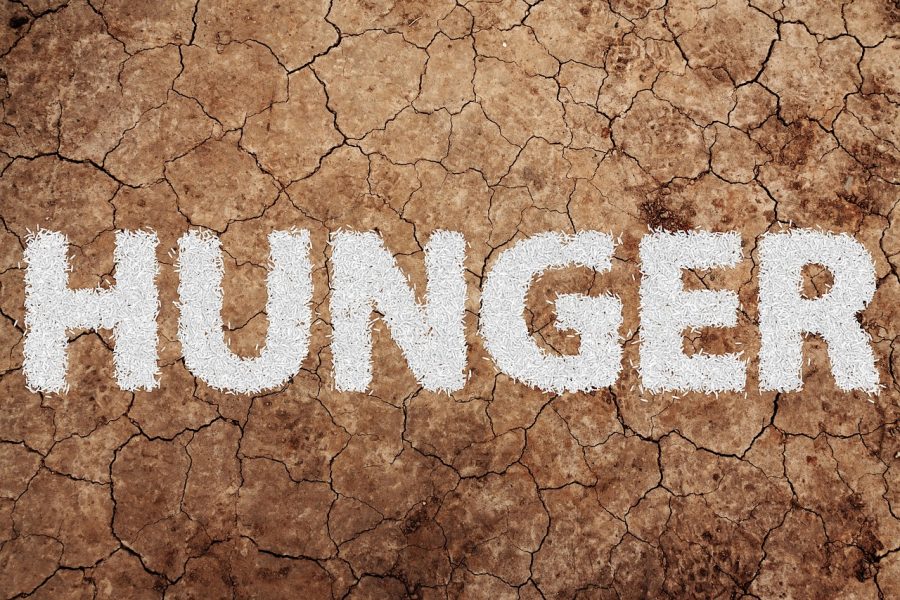OPINION: The low-cost steps the government could take to ease hunger on college campuses
The U.S. Department of Education must create an Office of Basic Needs to incentivize schools to ensure students have enough to eat and a place to sleep
September 3, 2020
Each new day brings another round of headlines about the struggles of the nation’s colleges to adapt to the coronavirus pandemic, the arrival of freshmen in reduced-occupancy dormitories, the limitations of remote learning and a sports season that seems unlikely to get off the ground. But outside the spotlight, away from the media and the public’s attention, millions of students are asking themselves one pressing question: Will I have enough money to buy groceries and pay rent in September?
Prior to Covid-19, Temple University’s Hope Center for College, Community and Justice, surveying nearly 167,000 students at 227 institutions, found 39 percent of participants had been food insecure in the previous 30 days, and the numbers are now worse. As we consider how to support students, we need to prioritize making sure they have enough to eat and a safe place to sleep along with providing high-quality instruction and internet access.
Food and housing insecurity among college students isn’t new, but it has been exacerbated by the pandemic and accompanying economic calamity. With our country poised for years of high unemployment and stagnation, our system of higher education must address this food and housing crisis without further delay. Over the past few months, we have identified several ways the U.S. Department of Education can immediately increase support for struggling students across the country.
We propose that the department create an Office of Basic Needs dedicated to understanding and solving these issues. This office, which would be led by a director of basic needs, would report directly to the undersecretary of education, who has the primary responsibility for higher education policy at the department. The role of this office would be to coordinate the department’s response and efforts to help ensure that students at all educational levels have access to food, housing and child care, as well other goods and services that are critical to a student’s educational success, such as internet. The office would also coordinate with other federal agencies, such as the departments of Agriculture, Health and Human Services, and Housing and Urban Development, and be an active member of the Interagency Council on Homelessness.
Under the direction of the Office of Basic Needs, the Department of Education should launch a “Basic Needs Gold Standard” program, a voluntary, nationwide effort to recognize schools that are successfully meeting the basic needs of their students. In 2013, the departments of Education and Veterans Affairs jointly challenged schools to adopt best practices to support the educational success of veterans. When the “8 Keys to Veterans’ Success” program was first announced, more than 250 community colleges and universities immediately introduced it on their campuses. As of 2020, nearly 2,300 colleges and universities have joined the program.
We believe the department should take a similar approach here, by publicizing a list of standards that schools must voluntarily adopt in order to be designated a “Basic Needs Gold Standard” institution. To meet this standard, an institution would have to demonstrate how it has met specific criteria, including: surveying its student body to identify unmet needs; collaborating with community organizations like food banks and child care centers; partnering with state and local agencies to get more eligible students enrolled in benefits programs like food stamps and rental assistance; publicizing available resources throughout the school community and making those resources convenient and easy to access; and offering appropriate training and resources so that faculty and staff are better able to identify students who would benefit from basic needs assistance.
The department would publicize this initiative by developing a dedicated website, hosting a forum or conference to share and discuss ideas on how best to support students and publicly recognizing schools that are part of the initiative.
Beyond public recognition, the department could provide financial incentives to address hunger, homelessness and child care insecurity by adding the criteria for the “Basic Needs Gold Standard” program as a supplementary priority for awarding discretionary grants. Grants to postsecondary institutions could be conditioned on schools’ adequately demonstrating, and regularly reporting on, how they are meeting their students’ basic needs and the criteria outlined in the “Basic Needs Gold Standard” program.
These steps could be adopted today, without authorization or appropriation from Congress. Intervening to ensure students have adequate food and housing isn’t just compassionate – it is critical to protecting the financial interests of the government overall. We know from exhaustive research that hunger seriously impairs learning outcomes and that financial insecurity drives dropout rates. Previous Department of Education publications acknowledge that dropping out of college increases the likelihood of student loan default and poses a risk to the overall federal student loan portfolio. At the institutional level, retaining students is crucial to a college’s ability to survive this ongoing recession without additional painful layoffs.
Regardless of whether the school year happens in person or on Zoom, students’ access to housing and food will be a factor in both individual academic success and institutional survival. There is no time to waste.
This story on basic needs was produced by The Hechinger Report, a nonprofit, independent news organization focused on inequality and innovation in education. Sign up for the Hechinger newsletter.
Abigail Seldin is the CEO and co-founder of the Seldin/Haring-Smith Foundation, which organizes and funds public interest projects to serve the new college majority. She is the producer of SwiftStudent, a free web tool that helps college students request additional federal financial aid.
Alice Yao is Senior Counsel at Student Defense. She previously served in the Office for Civil Rights in the U.S. Department of Education, where she worked on issues including ensuring equal access to career and technical education.


















